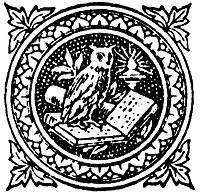ISSN 1750-4953
Marginalia
Home
About Marginalia
Current Issue
Archived Issues
Notes to Contributors
Links to Other Online Journals
Marginalia -- The Website of the MRG
Marginalia
Home
About Marginalia
Current Issue
Archived Issues
Notes to Contributors
Links to Other Online Journals
Marginalia -- The Website of the MRG
Foreword
�[A]fter after the noble and expert doctrine of wise and well-learned Philosophers, left and remaining with us in writing, we know�the properties of things�, writes John Trevisa in his translation of Bartholomaeus Anglicus� encyclopaedic De proprietatibus rerum. �All these properties of things be full necessary and of great value to them that will be desirous to understand the obscurities�. The enormous variety of topics which come under the heading of �medieval studies� means that medievalists often have a similarly encyclopaedic task. This Cambridge Yearbook issue of Marginalia showcases some of the best essays of last year�s MPhil students (as selected by members of the Cambridge English faculty), and serves as an illustration of the breadth and scope of current graduate work in this area.
The first article, �Ambition and Anxiety in The House of Fame and The Garlande of Laurell�, by Alastair Bennett, discusses the making of reputations through literature, with all the reinterpretations and revisions that are made by successive generations of readers and writers peering through the distorting lens of Chaucer�s �wikke fame�. As Bennett writes, �Chaucer considers the open-endedness of literary re-interpretation as a model for how his own work might be retold, generating anxiety about the future from his scepticism about the past�.
Next, the �rich, ambiguous stillness� of Mary�s response to the angel Gabriel is explored in Laura Miles�s �The Annunciation as Meditation: Stillness, Speech and Transformation in Middle English Drama and Lyrics�. Beginning with an examination of the Marian lyric tradition and moving through the Mary Play of the N-Town pageants, Miles suggests that �stillness becomes the paradoxical catalyst for dramatic transformation�.
Finally, Alex Steer looks at time and the liturgical calendar in �Re-reading Through Return in Sir Gawain and the Green Knight and Some Late Medieval Carols�. Comparing the cyclical structure of Sir Gawain with the repeating burdens of carols � such as the festive �Make we myrth/For Crystes byrth/And syng we Yole til Candelmas� � Steer argues that the poem �negotiate[s] between linear and circular conceptions of time as a carol alternates between phases of originality...and repetition�, leading to �the possibility of accessing meaning by re-treading old ground�.
As Chaucer maintains in The House of Fame, �every speche, or noyse, or soun,/Thurgh hys multiplicacioun,/Thogh hyt were piped of a mous,/Mot nede come to Fames House...Ech [voys] aboute other goynge/Causeth of othres sterynge/And multiplyinge ever moo�. In other words, literature is reshaped, rethought and renewed through successive acts of reinterpretation. It is hoped that the essays presented here will in turn provoke fresh acts of reinterpretation and revision by other graduate students, in Cambridge and elsewhere.
Special thanks are due to all those who worked on this issue of Marginalia � the editorial and advisory board, the contributors themselves, and the faculty members who supervised and selected the work. Chris Cannon in particular must be thanked for his involvement in this project. Finally, we would like to thank all those who attend the meetings of the Medieval Reading Group, whose lively discussions provide the Cambridge graduate community with a continually engaging forum for all aspects of medieval studies.
The first article, �Ambition and Anxiety in The House of Fame and The Garlande of Laurell�, by Alastair Bennett, discusses the making of reputations through literature, with all the reinterpretations and revisions that are made by successive generations of readers and writers peering through the distorting lens of Chaucer�s �wikke fame�. As Bennett writes, �Chaucer considers the open-endedness of literary re-interpretation as a model for how his own work might be retold, generating anxiety about the future from his scepticism about the past�.
Next, the �rich, ambiguous stillness� of Mary�s response to the angel Gabriel is explored in Laura Miles�s �The Annunciation as Meditation: Stillness, Speech and Transformation in Middle English Drama and Lyrics�. Beginning with an examination of the Marian lyric tradition and moving through the Mary Play of the N-Town pageants, Miles suggests that �stillness becomes the paradoxical catalyst for dramatic transformation�.
Finally, Alex Steer looks at time and the liturgical calendar in �Re-reading Through Return in Sir Gawain and the Green Knight and Some Late Medieval Carols�. Comparing the cyclical structure of Sir Gawain with the repeating burdens of carols � such as the festive �Make we myrth/For Crystes byrth/And syng we Yole til Candelmas� � Steer argues that the poem �negotiate[s] between linear and circular conceptions of time as a carol alternates between phases of originality...and repetition�, leading to �the possibility of accessing meaning by re-treading old ground�.
As Chaucer maintains in The House of Fame, �every speche, or noyse, or soun,/Thurgh hys multiplicacioun,/Thogh hyt were piped of a mous,/Mot nede come to Fames House...Ech [voys] aboute other goynge/Causeth of othres sterynge/And multiplyinge ever moo�. In other words, literature is reshaped, rethought and renewed through successive acts of reinterpretation. It is hoped that the essays presented here will in turn provoke fresh acts of reinterpretation and revision by other graduate students, in Cambridge and elsewhere.
Special thanks are due to all those who worked on this issue of Marginalia � the editorial and advisory board, the contributors themselves, and the faculty members who supervised and selected the work. Chris Cannon in particular must be thanked for his involvement in this project. Finally, we would like to thank all those who attend the meetings of the Medieval Reading Group, whose lively discussions provide the Cambridge graduate community with a continually engaging forum for all aspects of medieval studies.
Elizabeth Dearnley, on behalf of the Medieval Reading Group
 Contents |
 Next |

